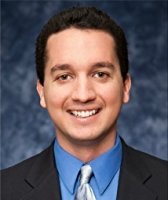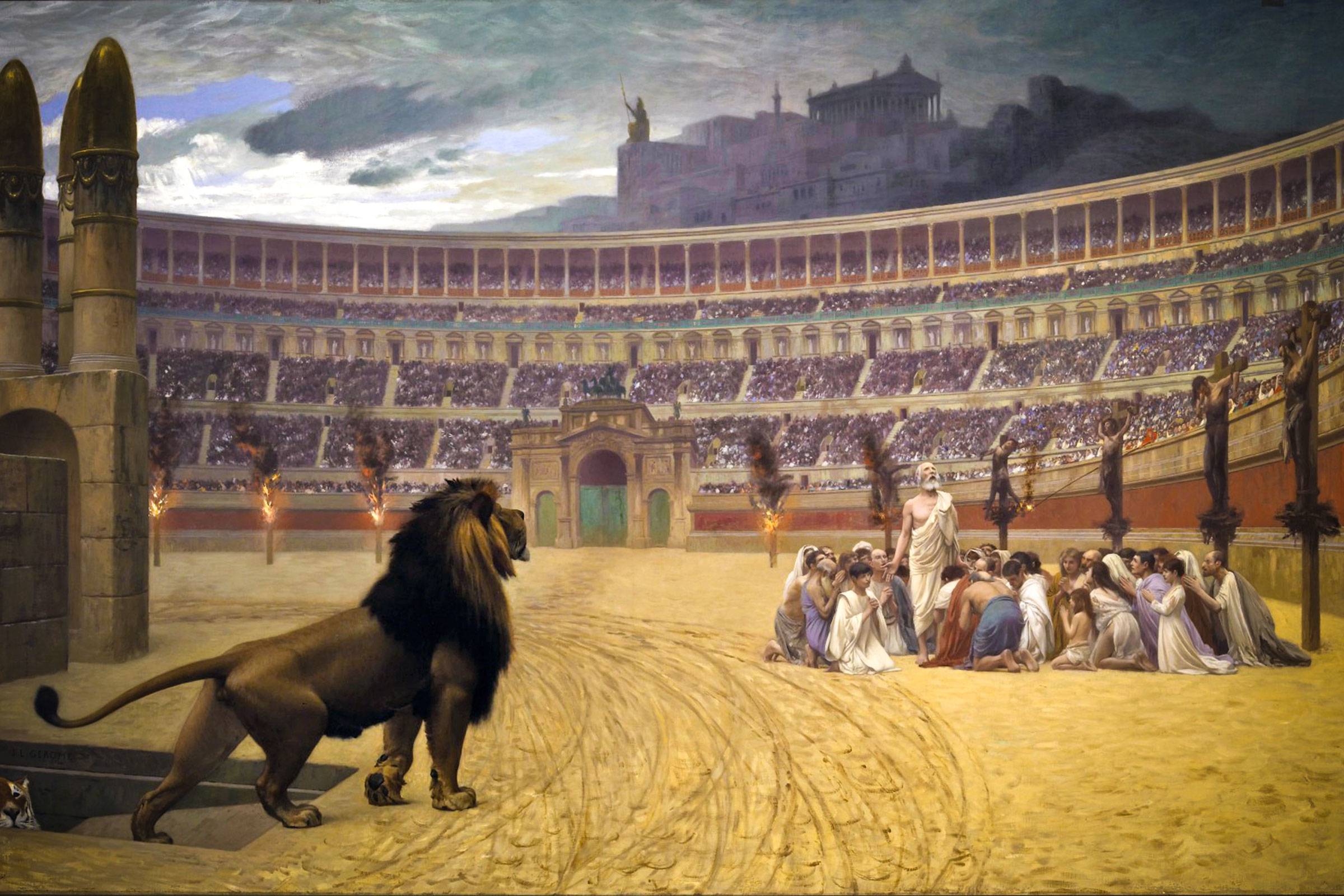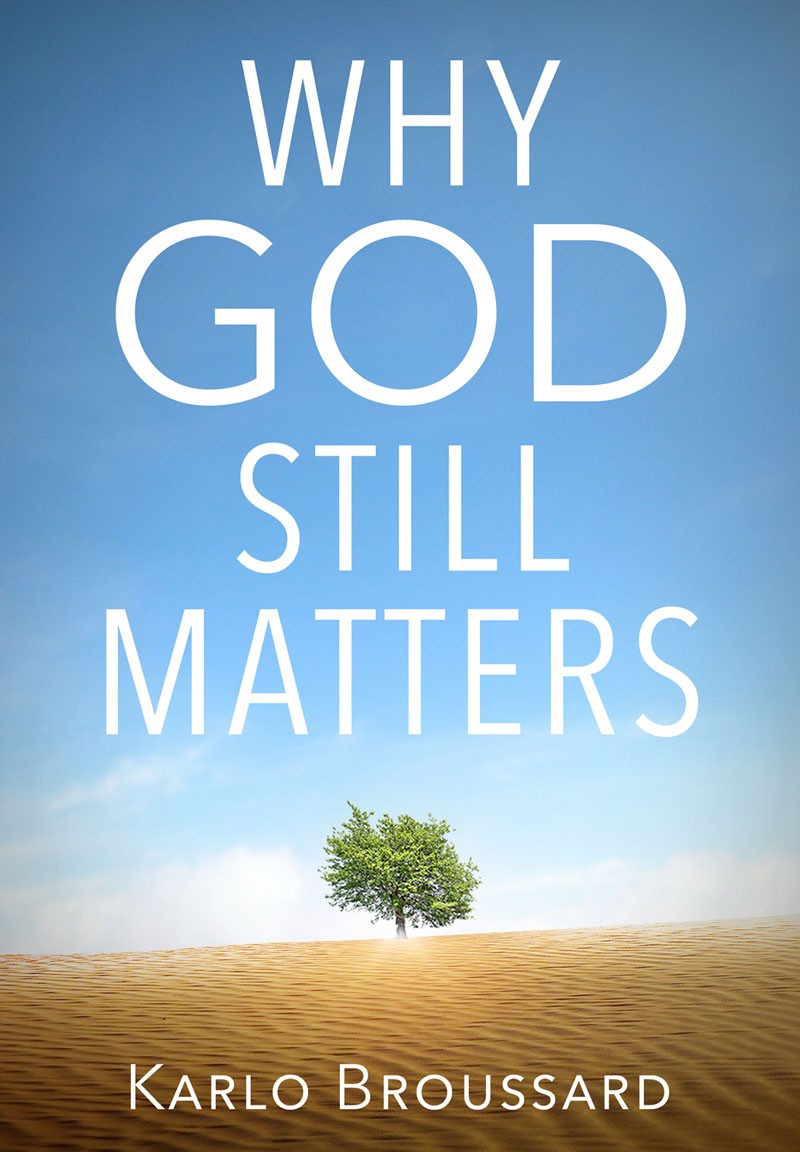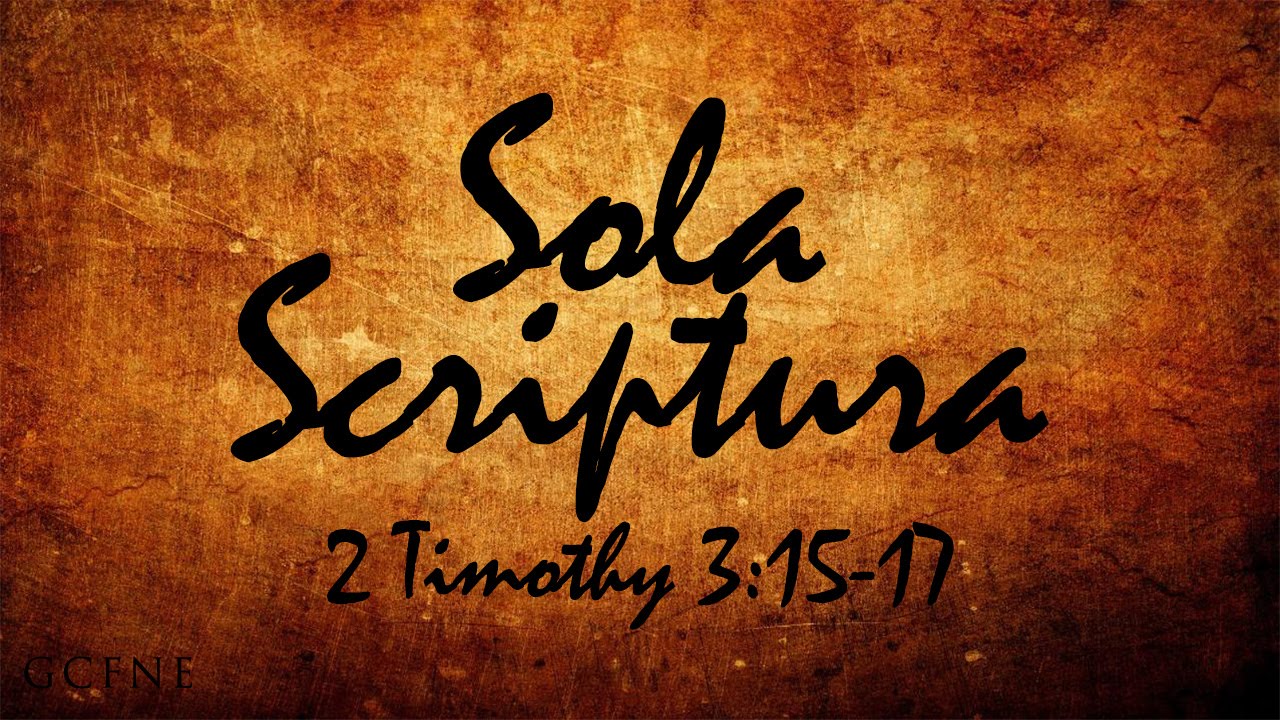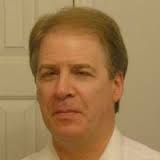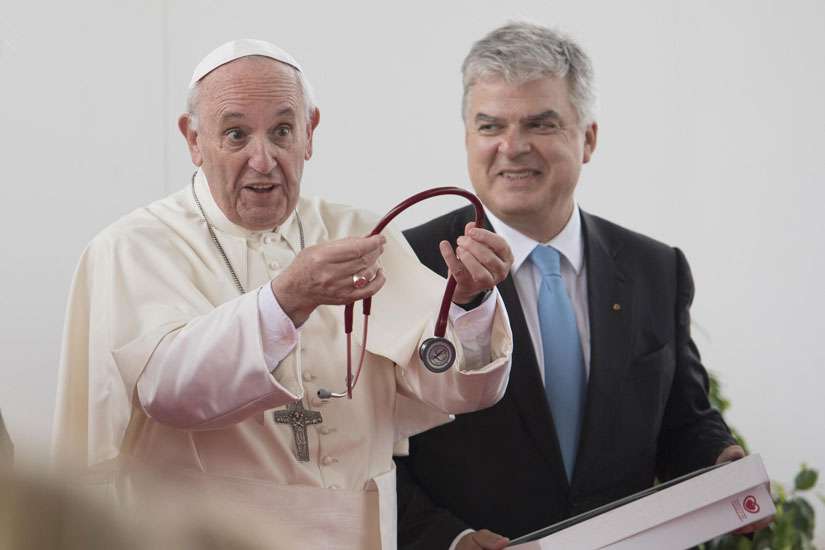
-interview w/Devin Rose
Q. The Protestant’s Dilemma has been out for three years and sales are still strong. Do you hear a lot from people who have read the book?
A. Yes, I do, on a regular basis. Many times someone on Facebook has recommended the book to a friend, and I thank them in a comment, and another friend of theirs chimes in that the book was the deciding factor in them becoming Catholic. I’m always overjoyed when I hear this, and give thanks to God, because he is the one who is moving their hearts.
Q. What was your motivation for writing Navigating the Tiber?
A. Several years ago I was having frequent discussions at work during lunch with a Catholic friend of mine and two Protestant friends. My Catholic friend, George, was strong in his faith and knew some apologetic arguments but felt overwhelmed with how to go about talking to our Protestant friends. He lacked understanding about where their beliefs came from, their thought processes during our discussions, and the Protestant framework from which they viewed theology, Scripture, and history.
I realized I needed to do a brain dump to equip him with this understanding. By sitting together and having these apologetics discussions with our Protestant friends for years, he absorbed the knowledge he needed to become an able defender of the Faith. What if, I thought, I could communicate that same knowledge to others, equipping them to become apologists? I can’t sit next to them for years, but I can distill all that they need to know into a book. Navigating the Tiber is the result of that. It is the next best thing to being able to sit next to a skilled Catholic apologist.
Q. How important is it to know about the faith background of someone considering the Catholic Church before we engage him in dialogue?
A. It is essential. Otherwise you jump to wrong conclusions about what he believes and how to help him see the truth of Catholicism. But Protestantism is dizzyingly varied. Understanding even a handful of the most popular families of Protestant denominations takes a decent effort. I break these down in the book and give the short and sweet background so you’ll be able to place your Protestant friend loosely into one of the groups.
Q. A lot of people will say they “follow the Bible.” Is this something you can use in your favor when talking about the Catholic Church?
A. Absolutely. What you will help them see is that, while they think they follow the Bible, a layer exists in between: their interpretation of the Bible. I point out the strategies you can use to enable them to realize this fact and then to uncover the fact that their interpretation may be erroneous, since it has been built on traditions of Protestants who came before them.
Q. What is the best place to start when beginning a dialogue about the Faith?
A. Start where your Protestant friend is, but then move him to the root issues: authority, the Bible alone, apostolic succession, Tradition, the canon of Scripture. This strategy is the central focus in Navigating the Tiber. Any dialogue involves a back and forth; your friend will want to go down a rabbit trail; you can follow him for a time, but then draw him back to the important issues.
Q. Are there any topics you should avoid when talking about the Faith?
A. Stick to doctrines and issues where the Church dogmatically teaches something one way or another. Avoid issues where opinions validly differ. For instance, you could talk for hours about the quality and value of contemporary Christian music. But pointing out the shallowness of many songs in this genre won’t win you many points with your Protestant friend, and it doesn’t get you any closer to the fundamental issues that divide you and him.
Q. You cover a lot of ground in your new book. Which Catholic teaching do you get the most push back on from non-Catholics?
A. Praying to the saints—especially Mary—is a tough pill to swallow for Protestants. It just feels so wrong to them. Even when the arguments are presented, there is a visceral feeling many of them have against accepting the communion of saints. This gut feeling—instilled in them since early in their lives by pastors, friends, and family—can’t just be argued away. In the book I help Catholics understand this dynamic and give tips on how to help them overcome the feeling.
Q. Along the same track, which anti-Catholic myth do you encounter most often?
A. Time and again I hear that Catholics worship Mary. It is the myth that just won’t die. This is another issue where you have to patiently explain that it is not true, why it’s not true, and then listen for the inevitable objections to follow. It is an opportunity to explain the difference between Catholics and Protestants in regard to prayer, the act of kneeling, and so on. For many Protestants, kneeling equates with worship. But just because a Catholic kneels does not mean he is worshiping something. You must also point out the difference between asking a saint to pray to God for you versus the erroneous notion that we pray to a saint as if they were God himself.
Q. What are the most common misconceptions that people have about the Catholic Church?
A. Many Protestants think that Catholics don’t read the Bible and that they just blindly follow the pope and whatever the Church says. This is an opportunity to discuss the interplay between faith and reason, the concept of “thinking with the Church.” Thinking with the Church is still thinking! But instead of looking for the first opportunity to assert one’s opinion against the Church’s teachings, the Catholic believes with faith that God protects the Church from error and so seeks to understand why it teaches what it does.
Q. Who do you think is more difficult to talk to about the Faith—an ex-Catholic, or someone who has no history with the Church?
A. Ex-Catholics are generally tougher. Their upbringing in Catholicism, especially if nominal, has sadly given them an inoculation against the Catholic Church. They think they know what Catholicism is when usually they have many misconceptions. Several times someone has begun a conversation with me by saying, “You know, I was an altar boy in the Catholic Church.” Being an altar boy is proof in his mind of being super-Catholic. Someone with no history may have general biases against Catholicism from our country’s secular society, but he won’t have the same antipathy toward it as someone who has left the Church.
Excerpts from the text:
Medieval Madness: The Inquisition
Along with the Crusades, the Inquisition is often the second part of a historical one-two punch that some Protestants like to throw at the Church. The Inquisition is much more likely than the Crusades to rub Evangelicals the wrong way. To them, the Inquisition was a tool to persecute Protestants (and proto-Protestants), silencing them so that the Catholic Church could keep its stranglehold on Christianity.
Having a ready defense for the Inquisition is thus even more important than for the Crusades. You need to show your friend that he has likely imbibed several myths about them—how many people were actually killed for instance—and also that his understanding of the time period is anachronistic.
Since it’s possible that your friend has a particularly jaundiced view of the Inquisition, it’s best to tread carefully. For starters, you should simply ask him what he thinks the Inquisition was. Then ask what he thinks it proves about the Catholic Church. Most likely, he will answer that through the Inquisition’s ecclesiastical courts the Catholic Church executed tens of thousands to millions of heretics, demonstrating that the Catholic Church is oppressive and evil, not allowing people free thought and religious choice.
Setting the Record Straight
Your goal here is one of education and gentle correction. The Inquisition—a broad term for a number of regional inquisitions over a long period during the middle ages—did consist of ecclesiastical courts that investigated and tried people for religious offenses. And yes, some of those people were then put to death by the state. But the numbers are wildly exaggerated in both the secular and Protestant imagination. No one knows exactly how many people were executed via the Inquisition, but the best historians agree that the number is in the thousands, probably not even reaching 10,000—certainly not millions or even hundreds of thousands. This will not immediately change your friend’s opinion of the Inquisition, but establishing that it was nowhere near as bloody as popularly claimed is important groundwork.
Many Protestants, especially Americans, are so used to separation of church and state that they can’t imagine heresy being treated as a criminal offense. You can remind your friend that during the centuries in which the Inquisition operated, religious belief was considered not just a private ecclesial matter but something that affected society as a whole. Egregious heresy could pose a danger to the public order. Consequently, church and state sometimes worked together—not just in Catholic countries but, after the Reformation, in Protestant ones too—to root out such dangers.
One group of heretics called the Cathars, for instance, arose in France in the twelfth century. They believed that the material world was evil, claimed it was created not by God but by an evil being who was equal and comparable to God. God himself was pure spirit, they asserted, so they denied that Jesus Christ could be God incarnate.
Further, the Cathars were aggressively opposed to the sacraments (including marriage), Church authority, the feudal government (by refusing to take oaths), and they promoted ritual suicide. Obviously, such beliefs are completely incompatible with Church doctrine, and they posed a threat to the stability of society. Catharism and Christianity could not peacefully coexist (nor would this have been a good thing even if possible, given the grave errors of this heresy). The Inquisition was one way in which France and the Church stamped out Catharism and restored public order, but the Church also tried reconciling them back to the true Faith through pastoral means by, such as sending missionaries like St. Bernard of Clairvaux and St. Dominic.
It is important to point out that the question of the Inquisition concerns disciplinary matters in the Church and does not touch anything of the Church’s doctrine. Your friend may try to argue that the Inquisition calls into question the Church’s infallibility, but this is simply not the case. The Church since the very beginning has had to deal with heresies and those who promote them. The ways, whether good or bad, that it did this never affected the Church’s dogmas one way or the other—they were merely the means by which the Church has enforced canonical penalties. Sometimes Church leaders wrongly disciplined people—it happened and still happens today—but that fact does not impugn the Church’s infallibility, which only covers its teachings on matters of faith and morals.
Another consideration to bring up is that the means used by the Inquisition, which occasionally did result in execution by the state and a limited form of torture, were methods common to the larger civilization at the time. Western society today has little appetite for such means, but it would be wrong of us to impose that modern standard back onto history. And besides, even in its use of such means the Inquisition was generally temperate, merciful, and legally fastidious—usually much more so than the secular courts. Its purpose was not to cause suffering but to bring people back into communion with the Faith. (Ed. better to suffer mild discomfort, relatively, in this life, and come to one’s senses, than to suffer eternal damnation.)
If your friend comes from a Reformed tradition, it bears mentioning that the early Protestants did not hesitate to use coercion and even impose capital punishment on those who disagreed with them. Philip Schaff, the respected Protestant historian, wrote:
To the great humiliation of the Protestant churches, religious intolerance and even persecution unto death were continued long after the Reformation. In Geneva the pernicious theory was put into practice by state and church, even to the use of torture and the admission of the testimony of children against their parents, and with the sanction of [Protestant Reformer John] Calvin. Bullinger, in the second Helvetic Confession, announced the principle that heresy could be punished like murder or treason.
The first Protestants sometimes executed those who disagreed with them, even fellow Protestants. In England, after Henry VIII broke from the Catholic Church and especially during the reign of his daughter Elizabeth I, countless Catholic priests and laypeople were arrested, tortured, and executed, their lands and property confiscated by the state. During this period, priests risked their lives to minister to the “recusant” Catholics who refused to assent to the new Protestant religion. And so if historically using force to quell perceived heresy makes for false Christianity, then not only Catholicism but Protestantism must be rejected as false.
All this said, whatever abuses that were committed by the Inquisition should not be excused. Ideally the ecclesiastical judges would always have been holy men, wise and concerned with the salvation of the defendant’s soul. And this was the case the vast majority of the time. But sometimes it was not, and human prejudices overrode authentic Christian judgment. But as with the Crusades, the sins of some do not make the whole Inquisition an evil thing, or still less invalidate the truth of Catholic teachings.
Indeed, though it’s important to discuss if your friend brings it up, the Inquisition is a peripheral issue to the central questions of authority between you and your Protestant friend. As soon as you can, try to move past it to more essential topics, ones that bear directly on the decision to be Protestant or Catholic. Do your best to quickly dispel the vague propaganda that your friend has no doubt heard and uncritically accepted, and then suggest moving forward to the next discussion.
Introducing the Church Fathers
Your Protestant friend has may have never heard of the Church Fathers (I certainly hadn’t when I was a Protestant). These were faithful and influential Christians teachers, pastors, and leaders who taught and defended the Faith from the late first century through the sixth. Many, though not all, are considered saints by the Catholic Church.
Given the impasse some Protestants face about how to interpret the Bible on baptism, it makes sense to start with that topic and bring in other evidence. And though your friend may not know much about the Fathers, he will likely be favorably disposed to hearing what the early Christians believed, since (especially with the Fathers of the first couple of centuries) there wouldn’t have been much time for the teachings of Jesus and the apostles to have been corrupted. So, what did these early Christians have to say about baptism?
The Church Fathers on Baptism
Start by sharing with your friend what St. Justin Martyr wrote about baptismal regeneration in the middle of the second century:
“I will also relate the manner in which we dedicated ourselves to God when we had been made new through Christ; lest, if we omit this, we seem to be unfair in the explanation we are making. As many as are persuaded and believe that what we teach and say is true, and undertake to be able to live accordingly, are instructed to pray and to entreat God with fasting, for the remission of their sins that are past, we praying and fasting with them.
They then are brought by us where there is water, and are regenerated in the same manner in which we were ourselves regenerated. For, in the name of God, the Father and Lord of the universe, and of our Savior Jesus Christ, and of the Holy Spirit, they then receive the washing with water….The reason for this we have received from the apostles.
And this food is called among us the Eucharist, of which no one is allowed to partake but the man who believes that the things which we teach are true, and who has been washed with the washing that is for the remission of sins, and unto regeneration, and who is so living as Christ has enjoined.”
Notice how Justin explains that baptismal regeneration remits our sins but also reveals that this teaching was received from the apostles. Justin was born around the time of the St. John’s death, so many Christians of his era still had living memories of the apostles themselves.
Another great Church Father from the second century who witnessed to the truth of baptismal regeneration was St. Irenaeus, bishop of Lyons, a disciple of St. Polycarp who himself was a disciple of St. John. Irenaeus pulls no punches in pointing out that to deny baptism’s regenerating effects is to renounce the entire Christian faith.
“And when we come to refute them [i.e. those heretics], we shall show in its fitting-place, that this class of men have been instigated by Satan to a denial of that baptism which is regeneration to God, and thus to a renunciation of the whole [Christian] faith.”
This is only a small selection. Both of these saints wrote even more about baptismal regeneration, as did other Church Fathers and early Christians in the second century. Once we get to the third century, the writings that support baptismal regeneration multiply. This early Christian witness to baptismal regeneration is unanimous. If this teaching were heretical and contradicted the apostles, you would expect at least a few leaders in the early Church to have stood up in protest of it, but not a single one does—or even offers an alternative interpretation for the relevant verses.
Present this historical evidence to your friend and give him time to respond. But be careful: the Church Fathers are Catholic to the core, and their writings contain many teachings that simply aren’t reconcilable with Protestant doctrine. You’ll want to introduce them to your friend gently and give him time to absorb the evidence they provide for the Catholic Church.
Some Protestants put little stock into what ancient Christians wrote, unless it is explicitly contained in the New Testament itself, so your friend may simply dismiss these writings. He may propose that they’re forgeries or that they represent a misleading sample of what the early Christians. You can patiently explain that even Protestant historians accept these works as genuine and as representative of what was being taught in the early Church. It’s not totally impossible that they represent a minority view, that other early Christians were teaching doctrines in agreement with modern Protestantism, but the simple fact is there’s no existing evidence that there were.
Two Protestants You Will Meet
Honestly, being a Catholic apologist has its downsides. One is that people feel they can email you out of the blue with a list of arguments against the Catholic Church and then demand you respond. Over the years I’ve received many such emails, some rudely written, others genuinely seeking answers. One upside to these messages, though, is that they give me insight into a broad swath of Protestant Christians and the varied obstacles that they face. I have noticed that many of those Protestants resemble one of two types: the Certain Guy and the Robot
The Holy Spirit Certainty Guy
Charles was a Protestant who emailed me, describing something of his history as a Christian: going from one denomination to another many times over the years as his beliefs changed and he decided his current church was in error.
His meanderings had finally made him wonder if, perhaps, Catholicism was what it claimed to be. “Maybe there is a true Church?” he asked. When a Protestant comes to this question on his own, it is a wonderful thing. It indicates an openness to the possibility that the whole Protestant paradigm may be mistaken; instead maybe God did preserve the Church from error.
In the second half of his email, however, Charles listed his chief objections to Catholicism, notably the Church’s beliefs about Mary. Charles ended by saying:
I am a Christian struggling with the dilemma of where to gather among other Christians to worship God—but the issue of praying to Mary is a stumbling block, or should I rather say, heresy in my opinion, which I regard as equal to idolatry and which will keep me very far away from the Roman Catholic Church.
Charles’s candor was refreshing. He said very directly that he could not imagine becoming Catholic due to what he saw as heresy. In my response, I gently nudged him with questions about how he knew what Christ and the apostles taught and how he knew that his interpretation of Scripture was accurate. I also gave evidence for the perpetual virginity of Mary and the intercession of the saints. I kept it to a few paragraphs and waited for his response.
Charles opened his reply thanking me for my email, but then he said “However, I am still completely unconvinced by your reasoning—and I know that I indeed do have the Holy Spirit who leads me into all truth and he is not leading me to believe what you have suggested.”
Ah, there it was! He believed that he had the Holy Spirit and read John 16:13 to mean that the Spirit will lead him individually into all truth. He was sure that the Holy Spirit was showing him that I was in error and that he was not.
Striking At the Root
When you encounter the Certainty Guy, you could you could respond to his impregnable certainty with an equally confident assertion, as I did: “I also have the Holy Spirit and am unconvinced by your reasoning, so we are at an impasse. Further, Martin Luther and John Calvin believed they had the Holy Spirit, and they rebutted other Protestants who held the same interpretation that you did about Mary’s perpetual virginity. So our impasse deepens.”
In this brief exchange we exposed the fundamental problem of Protestantism. He claims he’s right because he has the Holy Spirit. I claim that I’m right for the same reason. And according to Protestantism, no person or church or institution can adjudicate our competing claims. In any dialogue with a Protestant it is important to reach this point, so that your friend can realize the unresolvable dilemma that his beliefs create.
Charles emailed back telling me that he “does not arrogantly pick and choose” his beliefs as I suggested. Of course, I never claimed that his choosing was done in arrogance, only that he was indeed picking and choosing: picking which issues were essential versus non-essential, and choosing what to believe on each of those issues. Even if he did not do it arrogantly, the fact remained that he was doing it, and that under Protestantism’s paradigm he had no choice but come up with an individual belief on every issue he came across.
It is instructive that even though I said nothing about him acting arrogantly or capriciously in choosing his beliefs, Charles inferred that I made such an accusation. Misunderstandings like this occur often in any discussion about beliefs. Faith abides deeply within us, and any perceived challenge to our beliefs can result in a defensive reaction, even if our discussion partner acts in a completely amiable way.
Our email exchange continued for a bit longer and wended toward the question of whether sola scriptura was true, but for our purposes here the main point has been shown. When you face Certainty Guy, who is absolutely confident in his interpretation of Scripture and of the Holy Spirit’s guidance, simply push back, without any rancor, that you can claim the same thing, and so reveal a conundrum.
The One-Way Street
About six months after my book The Protestant’s Dilemma was published, I received an email from a Protestant man (whom I’ll call Louis) directing me to his website where he was making a chapter-by-chapter rebuttal of my book. He was brief but respectful enough, so I went and checked it out. His was the first substantive attempt to rebut my arguments, so I was interested in what he had to say.
Unfortunately, his site had the look-and-feel of a Web 1.0, circa 1998 site hand-coded in basic html. Even though as a computer programmed I winced, I was able to ignore that, but since he was attempting a rebuttal one chapter at a time, I also had no way of knowing when he posted more updates for me to read.
I kindly emailed Louis and suggested he go with a standard blogging website, which would allow him to publish each of his rebuttal attempts as blog posts that I and others could subscribe to. He paid no attention to my suggestions and instead just kept sending me short emails, about once a day, that had a link in them to his argument web pages.
I figured that I would give him another chance to interact in a constructive way, so I went to one of his links, read his argument, then sent him an email rebutting the argument. In this particular case, he was denying that Mary was the mother of God. I explained why this title is valid, but he ignored my argument and sent me yet another link to his web page.
At that point I realized I was dealing with someone uninterested in interacting like a human being. Rather, like a machine he wanted to blast his arguments at me—whether they were sensible or not—and didn’t want to have a discussion. It was a one-way street. I called him out on this and said I would automatically filter his emails into the trash if he continued this robotic behavior. He immediately continued it, and I filtered his emails. The next day he emailed me from a different address!
Domo Arigato, Mr. Roboto
Most Protestants, thankfully, are not robots like Louis. But some are, and possibly you will encounter one, whether virtually or in person. Keep in mind that you are not obligated to respond to them or to play by their (lopsided) rules. In my experience, interacting with such people goes nowhere, as they are not truly open to discussion and honest analysis of the arguments.
Instead, they are locked into existing beliefs that see Catholicism as apostate or heretical, and have one goal: to disseminate attacks against the Church in rapid-fire fashion.
And remember, even when people act in such exasperating ways, seek to forgive them. Pray for them—the best thing and often the only thing that you can do—and leave them in our Lord’s hands. You hope to see them and be with them in heaven one day, in spite of their errors and your own faults and weaknesses.”
Love & (the search for) Truth,
Matthew
